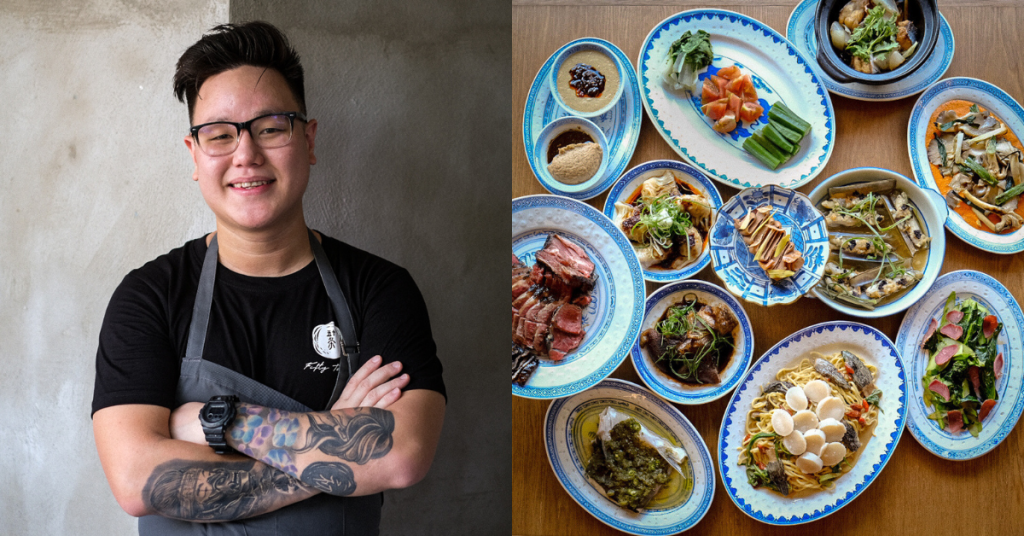“Not Ramen”, that’s the first thing that caught my attention when stumbling upon Fifty Tales.
It’s an odd statement to make without context and I thought it was just a quirky way of branding themselves. But it turns out this isn’t a gimmick at all.
Its head chef, Aaron Khor, explained that Fifty Tales began as a noodle bar. During its early days, many people thought it was a Japanese ramen bar and left them bad reviews because of it.
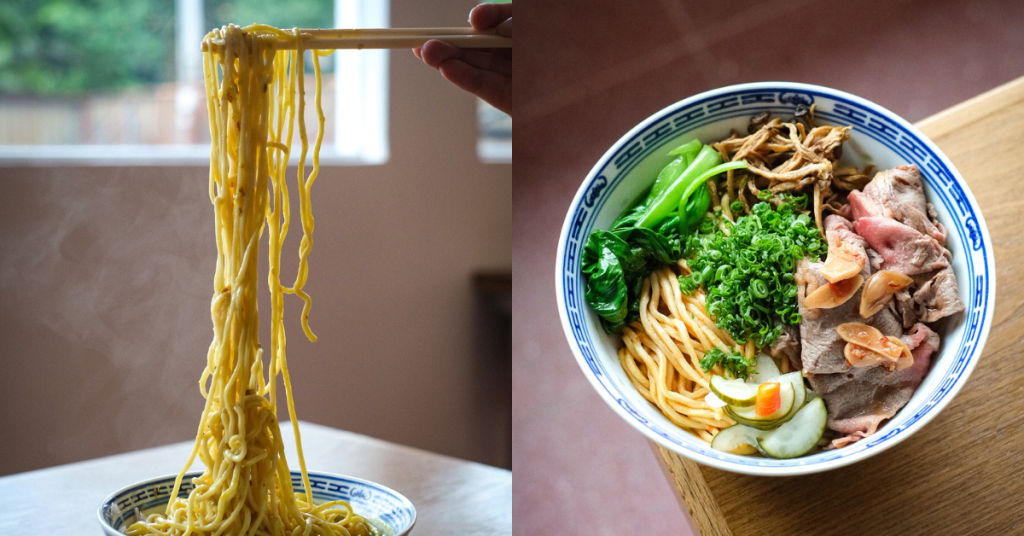
“We were confused by this, as we had no correlation or connection to Japanese branding or cuisine,” Khor recalled. However, the incident made them realise how undervalued Malaysian Chinese cuisine was compared to imported ones.
“It started out with a simple question—why are we okay paying RM40 to RM50 for a bowl of Japanese ramen, but not RM20 to RM30 for a bowl of Malaysian Chinese soup noodles?”
So Khor and his two co-founders, Aaron Phua and Bimmy Soh, decided to change that and show just how special local food can be.
Revamping traditional classics tastefully
I know what you’re thinking, plenty of other restaurants in Malaysia claim to do the same thing. If everyone is doing it then how “unique” is it really?
Fifty Tales’ take on this is by offering a modern twist to traditional Chinese dishes you grew up eating. This isn’t to be confused with fusion cuisine where you mix two cultures in one plate.
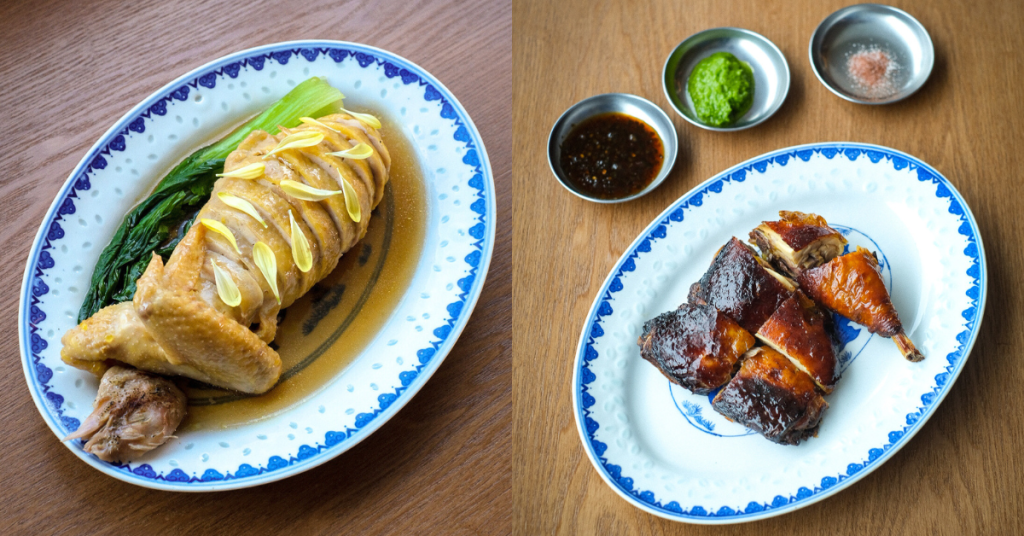
What Khor and his team do is look back at legacy cuisine that has lasted through the test of time and give it a modern spin. “We try our best to make it more refined and elevated, using better ingredients and techniques that are relevant today,” he explained.
For example, the restaurant offers Roasted Corn-Fed Chicken Leg as part of its dinner menu called Cincai Dinner. Instead of just scallion oil, Khor uses kulim oil which is known as “jungle garlic” due to its garlic aroma.
Fun fact: Kulim oil is also dubbed as the “truffle of SE Asia”. One local brand that creates and sells this is Oylhaus.
Besides that, the restaurant also looks at traditional cuisine from different dialects, such as Cantonese, Teochew, and Hokkien.
The idea for this came from getting to know their team better and learning the different food they grew up eating. “We realised there were more differences between each of us than things being common [and] we wanted to highlight that,” he shared.
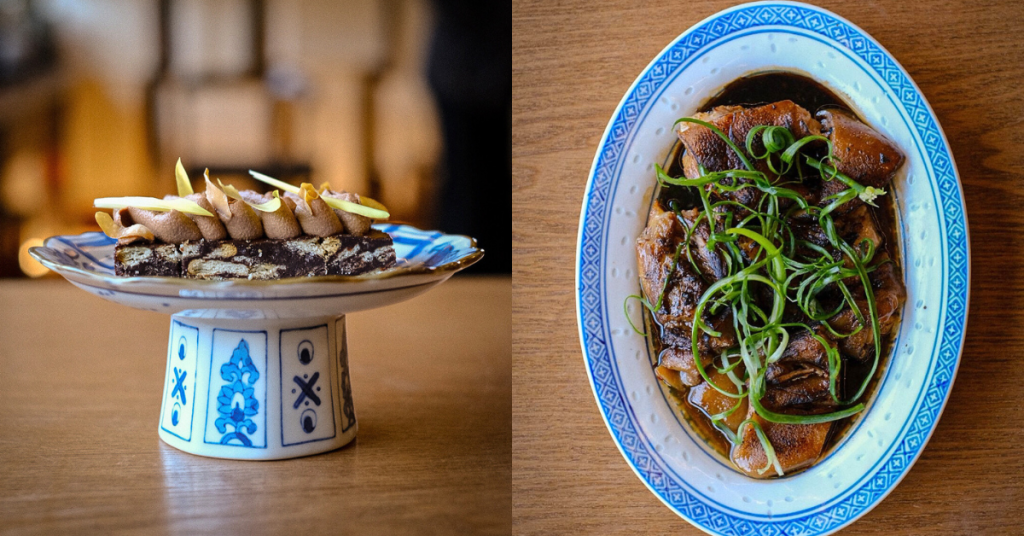
Hence, you can find dishes like Braised Pig Ears (a Cantonese dish) and Steam Sabah Razor Clams (a Hokkien dish) at its PJ outlet.
But if that’s not up your lane then you’ll still be able to find the restaurant’s initial noodle offerings during lunchtime.
The team isn’t a fan of complacency
All that said, being part of a young team, Khor shared that the offerings at Fifty Tales aren’t stagnant. The restaurant makes it a point to innovate their menu about every quarter of the year.
They would also come up with special menus for festive seasons like Chinese New Year and the Mooncake festival. But don’t worry if something you like is taken out, as they usually bring back dishes that customers know them for.
Many of these items are developed by Khor himself, though his partnering co-founders and team give their input as well. Testing and trials are done internally to ensure a dish gets the green light beforehand.
Having trained in the now two-starred Michelin restaurant, Dewakan for two years, Khor is well-equipped to handle this responsibility.
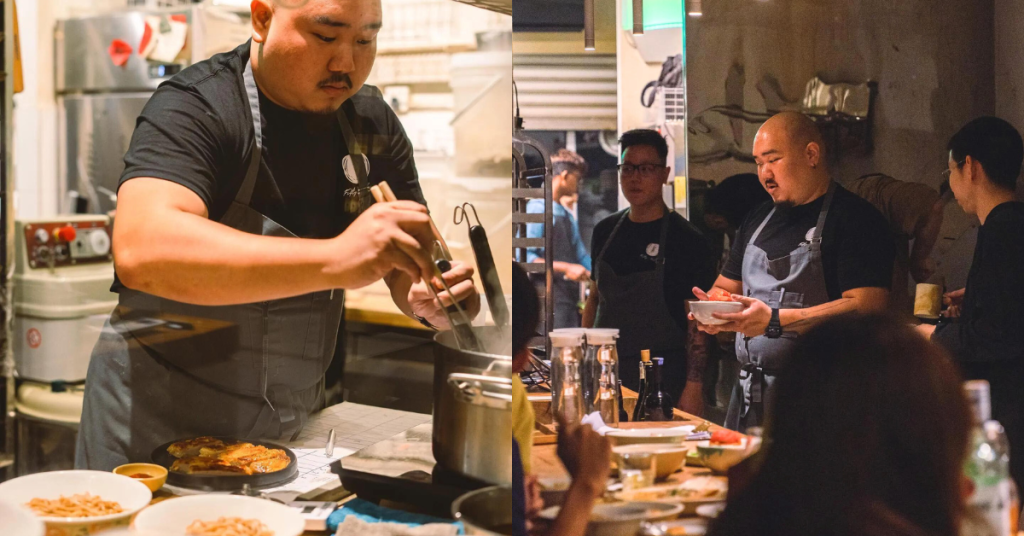
He’s supported by Phua and Soh who have equally established credentials. For context, Phua also runs another cafe called Thirty Seconds, whereas Soh was culinarily trained in Australia for seven years.
Fifty Tales was the brainchild of Phua and Soh who were classmates in Berjaya Campus. Khor joined them a year after its inception as head chef and later became a business partner. Together, the trio grew the restaurant from a noodle bar to the family-oriented establishment it is today.
Aside from the food, another way they’ve grown the business is through collaborations with other local and international chefs, including ClubSoda in Bali and Sugarhall in Singapore.
This ongoing initiative is their effort to create unique experiences. At the same time, it’s also to bridge connections with different chefs and restaurants around the world and create a community.
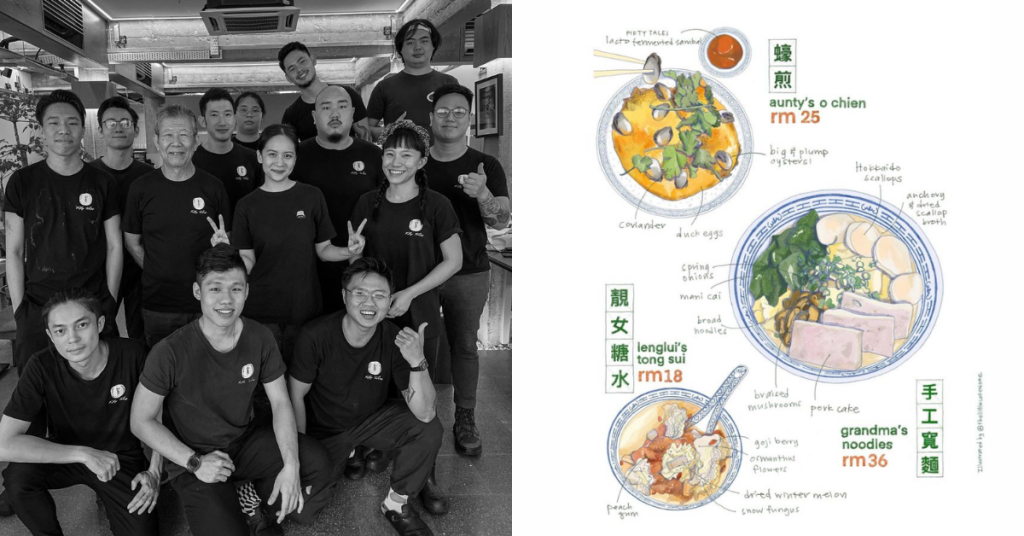
Growing with customers and present times
The modern Chinese restaurant mainly aims to serve those in their mid-30s and above. This is because their dinner menu is engineered in a way that it’s suitable for sharing amongst big families and groups.
Once the communal dishes are decided upon, customers can choose to pair them with plain rice or their signature “Ren Li Mian” (handmade noodles).
However, this will change as time goes on. The team finds it important to adapt to current times and understand that their target market will never be fixed. Mid-30s will later become mid-40s, so on and so forth.
“We grow with our customers, remembering our regulars and making sure they feel heard because they’ve supported us from day one,” Khor said.
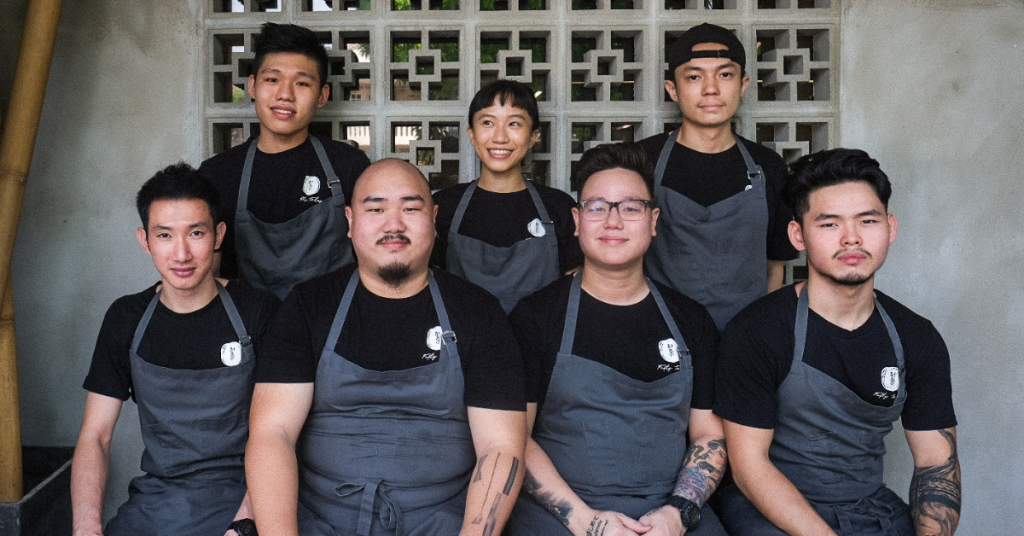
This is also another reason why they’ve stuck with Cincai Dinner as well. It initially started as a way to adapt to the challenges of surviving COVID-19, but many diners requested they keep it so it’s now a mainstay.
Ultimately, Khor and his team want to be both a reminder of their customers’ childhoods and futures by providing nostalgic yet innovative food.
In some ways, it echoes Khor’s culinary background at Dewakan, where the restaurant’s founder (Darren Teoh) once shared that “tradition is fluid” and needs to evolve and change with time.
Featured Image Credit: Aaron Khor, the Dewakan-trained chef that helms Fifty Tales’ kitchen / Fifty Tales



